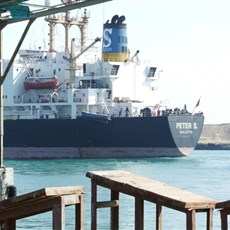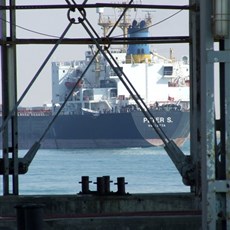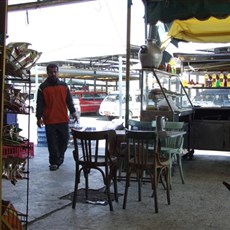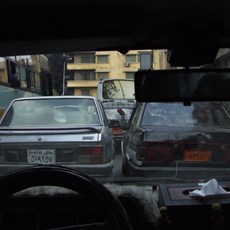2006 Egypt
9 January 2007, Tuesday; Pension Roma,
Cairo, LE82 (incl)
We had a long day as we had to get up
early, after an icy cold night in our cave-like room, to catch the 06h00 bus to
Suez / Cairo. On an icy cold and quite windy morning. It was even cold in the
bus. Which drove us west across the remains of the Sinai to the Gulf of Suez –
with its coastal developments a la El Alamein and its fortified positions and
its security anxieties. On the east of the tunnel under the canal we all had to
disembark at an army post, place our removed luggage in a row, and stand aside
while it was “searched” with a metal detector.
Then back on the bus and under the canal to
be dropped on the main road on the outer edges of this sprawling city. We saw
no other foreigners in town and were amazed to find that no-one here asked for
baksheesh for helping us nor wanted to charge us more than the local rate for all
the (share) taxis we took both to and from the canal or the final (real) taxi
we took for the long drive out to the Cairo bus station (only LE5 for 15km).
Charl did offer someone one of his local Cleopatra cigarettes, but the local
wanted Marlboro.
Suez Canal facts
177 km long stretching from the
Mediterranean to the Gulf of Suez.
Traffic is one-way, taking 15 hours in
convoy.
Built by a French-Egyptian company, La
Compagnie Universelle du Canal Maritime
de Suez – that was to excavate the canal and run it for 99 years.
French engineer Ferdinand de Lesseps.
Suez not the first canal cut to give better
access to the Red Sea: Ramses II cut a canal from Bubastis on the Nile delta to
the Bitter Lakes in the 13th century BC.
This had silted up by the time the Persians
conquered Egypt, but Darius, who ascended the Persian throne in 522BC knew the
importance of swift communications.
He cleared Ramses canal, extended it to the
Gulf; and built roads.
Linking the Med with the Red was first
proposed by Napoleon’s engineers, but they thought there was a 10m difference
in the level of the two seas and abandoned the idea.
Ferdinand presented a new plan later to
Said Pasha (Mohammed Ali’s son), who provided 1/3 the capital; the French paid
the remaining 2/3.
Work began in 1859 and was completed by
Said Pasha’s successor Ismael Pasha in 1869.
Immediately profitable: in 1864 Egypt’s
total annual revenue was under 5,000,000 sterling; by 1875 it was 145,900,000
sterling – due to Suez and cotton exports to the US during their civil war.
Over 13,000 km of canals were dug during
Ismael Pasha’s reign – mainly irrigation canals to extend the area under
cultivation.
He was a great social reformer, but
overspent and went bankrupt.
Disraeli raised a loan from Rothschild and
bought the Pasha’s shares in the Suez Canal – the Brits had been opposed to the
canal in French hands as it gave them a short cut to India.
The British became the largest single
shareholder in the canal and secured their passage to India.
As we climbed out of our last minibus taxi
within sight of the canal, we saw a ship thereon (the Peter S. Valletta) and
ran to photograph it – catching its backside as it made its stately way north.
And that was all she wrote.

Suez Canal

Suez Canal
After a quick lunch and a relatively clean loo break at the bus station, we got the bus into Cairo. The loo was managed, unusually, by a woman instead of a man. With, as usual, the water spout and tap for washing one’s nether regions rather than using loo paper. Actually much cleaner than our western methods, though I prefer the hand-held shower nozzle used in Thailand – greater accuracy!
We were dropped at the Turgomen Garage in peak hour traffic and sat relaxed in the cramped back seat of a taxi while our driver negotiated his way from there to the Pension Roma. We got out before our stop as it was faster to walk the final block. And were thrilled to find that although we were a day early, our room was available for us immediately at their new price of LE82 (incl).
Strange how nice it is to come back to familiar territory. We knew exactly where we wanted to eat (the fish restaurant around the corner) and felt immediately at home.

Lunch break

Cairo traffic